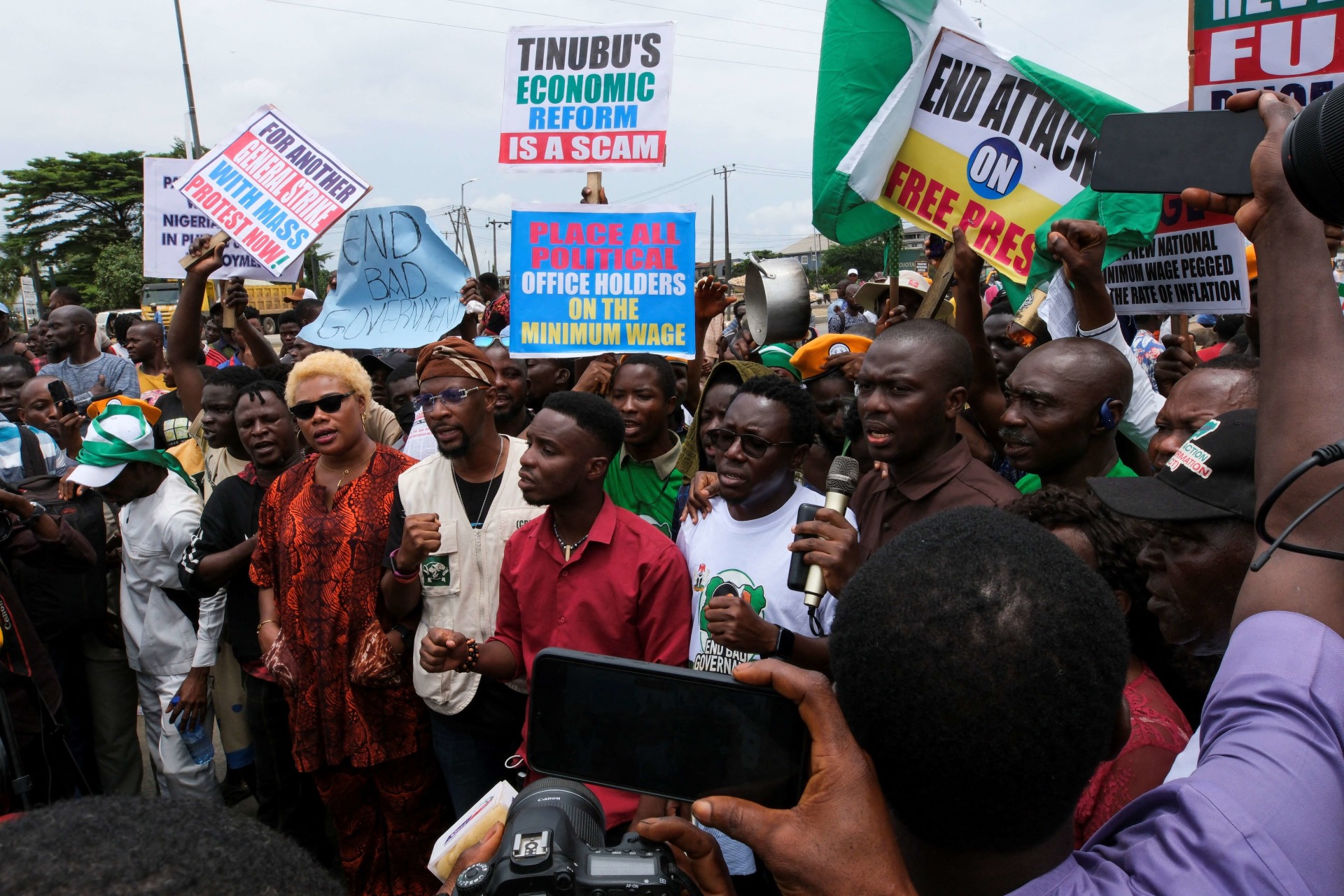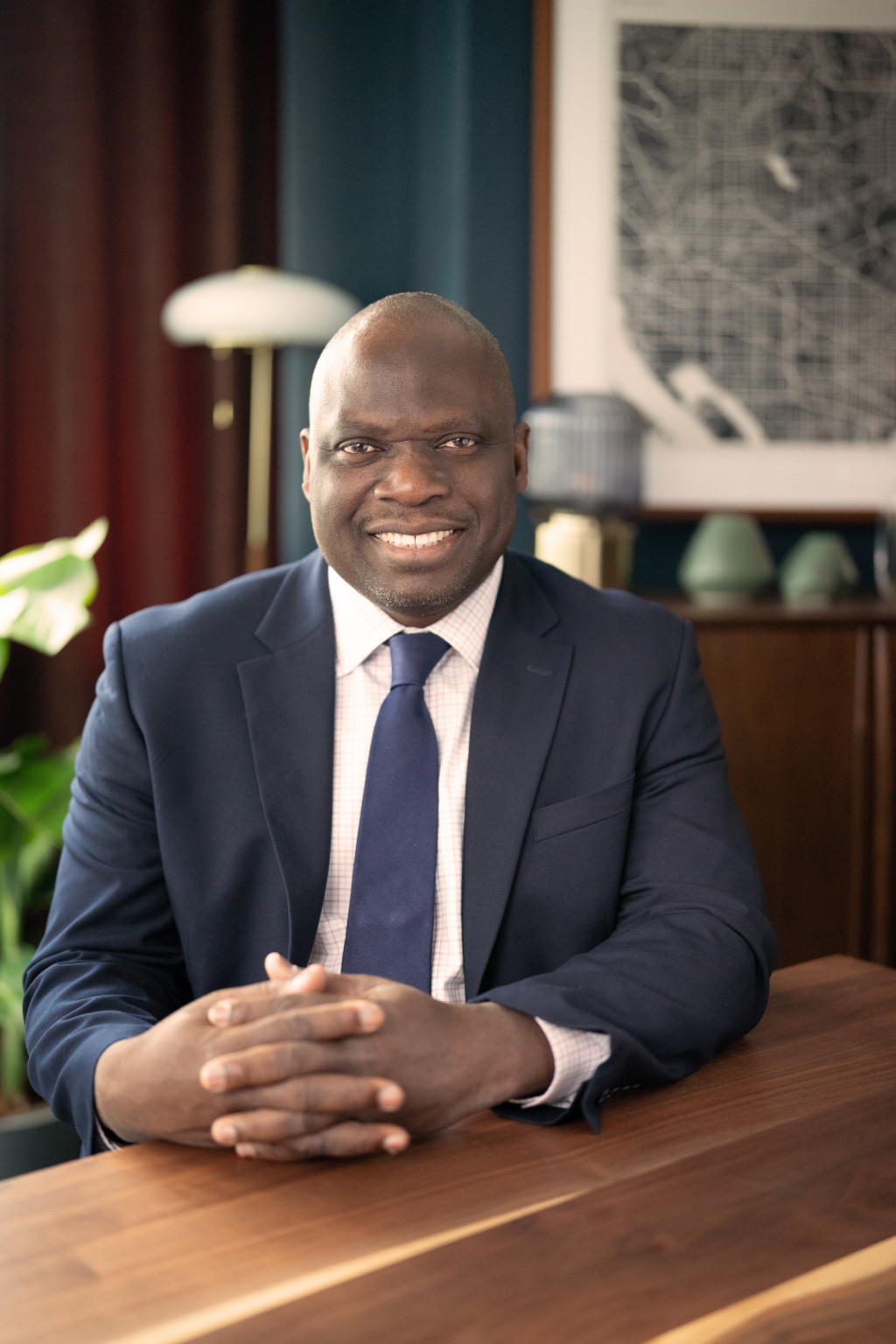The Myth of the ‘Leaderless’ African Protest
Rather than being leaderless, contemporary African protests are being steered by a leadership no one saw coming.

By experts and staff
- Published
Experts
![]() By Ebenezer ObadareDouglas Dillon Senior Fellow for Africa Studies
By Ebenezer ObadareDouglas Dillon Senior Fellow for Africa Studies
When the #EndSARS agitators presented their list of demands to the Nigerian authorities in late 2020, many were surprised to see the negotiating team headed by twenty-eight-year-old David Adeleke, “Davido” to his millions of followers. A popular entertainer and larger-than-life presence on social media, Davido is not your typical protest leader, and, from all accounts, was not politically active as a university undergraduate. Yet, what Davido may have lacked in terms of political apprenticeship, he more than made up for with his status as a popular influencer and celebrity, the kind who, at the click of a tweet, could send thousands of young marchers to the streets.
Davido was not the only celebrity activist unveiled by #EndSARS. When, on the occasion of the one-year anniversary of the protests, Lagos State Governor Babajide Sanwo-Olu summoned the leaders for a “peace-walk,” it was another entertainer, comedian Adebowale Adedayo, aka Mr. Macaroni, who spoke out to pour cold water on the idea.
Sections of the Western press have routinely characterized recent protests across Africa—and in some cases other parts of the world as well—as “leaderless.” To take the most recent example, last month’s protests in Kenya against new tax proposals by the government of President William Ruto was instantly labeled “leaderless;” same as the anti-Western demonstrations which rocked Kinshasa, capital of the Democratic Republic of Congo (DRC) in February; and before them the crowd actions triggered by the spate of military coups across the West African Sahel between 2020 and 2023.
Media representation of these protests as “leaderless” is somewhat understandable. Seen from a distance, they, i.e. the protests, appear rather diffuse and horizontal, exhibiting none of the features typically associated with street protests of an earlier era. This, coupled with, in some cases, the element of spontaneity, appears to justify their perception as disorganized and shorn of any kind of leadership.
As if to confirm commentators’ intuition, demonstrators across some of the protests have been photographed carrying placards with the legend: “We have no leaders.”
The significance of this cannot be overestimated. In the first place, an embrace of “leaderlessness” can signal a refusal to conform to the rules of a traditional form of politics that protesters deem illegitimate and moribund. Insofar as playing by the rules means having one’s grievances articulated and channeled by designated leaders who are expected to operate within the system, having “no leaders” becomes a symbolic rejection of the existing system and its protocols.
Similarly, it can be a coded message to the state and its representatives about protesters’ determination to resist financial inducement, an ever-present danger for social movements and civil society organizations operating within a lopsided social terrain in which the state whimsically allocates resources to reward or punish—as the case may be. From this perspective, carrying a placard that declares “We have no leaders” can be a statement that the movement in question has no “head” that can be decapitated as such.
In any case, a claim to leaderlessness, far from being an empty gesture, is a politically loaded move, one that is pregnant with meanings about African social movements’ sense of selfhood, and the state of play between them and the state in a specific political environment. If that is the case, claims to leaderlessness, instead of being taken at face value, ought to be seen as an invitation to investigate the profile of such movements in their dynamic interaction with structures of power and their immediate environment.
Take, for instance the ostensible rise of entertainers and celebrities to the apex of political leadership. Inter alia, it begs the question of what social forces facilitated their propulsion, and what opportunities in the social and political matrix they have taken advantage of. In one sense, their political ascendance owes in part to the mutual rise of social media and the saturation of social life, most especially contemporary politics, by popular entertainment. But that is not all. In another sense, the rise to political significance of entertainers and celebrities is directly correlated to the decline of once ebullient centers of political opposition and “progressive politics” like trade unions, student union movements, and related bodies within the broader civil society. With this in mind, it comes as no surprise that, similar to Davido, hardly any of the celebrity activists recently thrust into the political limelight belonged to any known political, student, or labor organization.
Insofar as the foregoing is accurate, it suggests that, rather than contemporary African protests being leaderless, we might actually be witnessing a momentous transition from one generation of leaders to another, the reasons for the decline of one generation of civic leaders being as crucial as those accelerating the emergence of the new. In other words, what we are seeing unfold are fundamental shifts in the nature of political leadership, social mobilization, and the character of civil society across African states.
